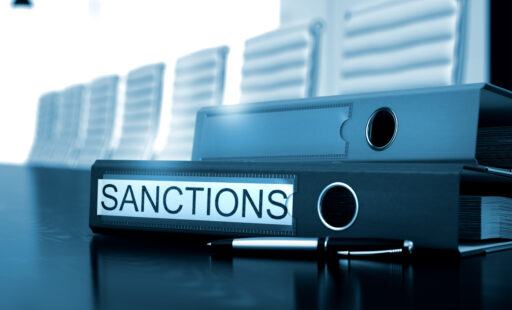Can a company be legally responsible and subject to internatinal sanctions for assisting state authorities in political persecution?

07. 03. 2023
Yes, according to the Court of Justice of the European Union.
The readers may recall that in May 2021 a Ryanair aircraft from Greece to Lithuania was forced to land in Minsk based on false bomb threat alarm. This allowed local authorities to arrest a dissident journalist and his partner. As an answer to this incident, EU expanded the sanctions against Belarus imposing measures, among others, on a State-owned enterprise Belaeronavigatsia. In view of the Council of the European Union, Belaeronavigatsia, being in charge for Belarusian air traffic, bore responsibility for politically motivated decision to divert the flight to Minsk airport.
Belaeronavigatsia challenged Council’s decision in the Court, claiming that it was made pursuant to an error of assessment and failed to have regard to the principle of proportionality. The Court dismissed the action, and held Belaeronavigatsia responsible for the repression of civil society in Belarus. The judgement comprises several important observations.
First, the Court, interpreting the relevant legal instruments, held that entities whose activities contribute to the repression of civil society are responsible for that repression irrespective of their intent, as soon as they are aware or cannot reasonably be unaware of the consequences of their activities. The Court made it clear that the restrictive measures do not constitute punitive measures, and therefore do not require intentional element on the part of the perpetrator.
Second,the Court commented on what evidence constitutes sufficiently solid basis to impose restrictive measures. In this case, the Court found the article on the Reuters web-site, other press articles related to the incident constitute a set of indicia sufficiently specific and precise to show entity’s direct contribution to the incident. The Court further examined the evidence which appeared after the measures were adopted, including ICAO reports on the incident, and found they only confirm and clarify the evidence available when the measures were initially imposed.
Third, although only some employees of the entity were actually involved in committing the actions which led to adopting the measures, the entity itself is responsible for these actions, because they were committed on its behalf, using resources and powers of the entity in question. The conclusion may be different when the employee acts for his or her own benefit, to the detriment of the entity to which he or she belongs.
Finally, the Court held that the measures were adopted in compliance with the principle of proportionality, as there is a reasonable relationship between the measures and the objective pursued, i.e. to promote democracy, human rights and the rule of law in Belarus. Also the ICAO Council concluded in 2022 that the government actions were unlawful, based on claims were “deliberately false and endangered its safety.”
